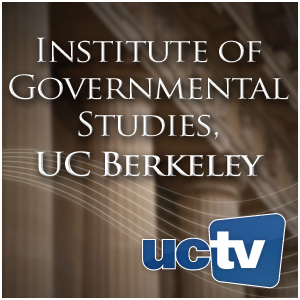58m ·
Published
04 Jan 21:00
Ticks are vectors for human disease, including Lyme disease. Semay Chou studies the vector–pathogen relationships at UCSF. Here she discusses strategies for blocking tick-borne diseases and what we can learn from ticks. Series: "Mini Medical School for the Public" [Health and Medicine] [Agriculture] [Show ID: 35241]
59m ·
Published
22 Apr 21:00
Sooner or later, the food requirements of nine billion people with increasing appetites for seafood must be addressed. Although aquaculture may supply the majority of the global ‘seafood’, most aquaculture is fed meal from wild caught fish, such as sardine and anchovy. To estimate the distributions and abundance of these and other small fish off the west coast, NOAA Southwest Fisheries Science Center routinely conducts “acoustic-trawl” surveys. David Demer will briefly describe the vessels, instrumentation and methods that are used to conduct these surveys, and provide a virtual tour of the world-class facilities in La Jolla that are used to develop the next generation of autonomous, ocean-sampling technologies. Join us to learn more about this exciting technology and be part of a discussion about possible ethical challenges. Series: "Exploring Ethics" [Humanities] [Science] [Agriculture] [Show ID: 34378]
1m ·
Published
12 Mar 21:00
UC Davis has one of the best agriculture schools in the world, helping to feed a growing a population. Take a peek at the SAFS major in the College of Agriculture and Environmental Science at UC Davis. Series: "UCTV Prime" [Agriculture] [Show ID: 34585]
1m ·
Published
07 Mar 21:00
Veterinarians at UC Davis and the Sacramento Zoo perform surgery on Coconut's eyelids to remove hair that is causing irritation Series: "UCTV Prime" [Agriculture] [Show ID: 34581]
2m ·
Published
05 Mar 21:00
Every part of the Moringa plant is edible - leaves, pods, seeds, flowers, even its root. The feathery leaves alone pack a powerful protein punch – nearly 30 percent by dry weight. Legumes don’t even have that much protein, nor all the essential amino acids. Series: "UCTV Prime" [Agriculture] [Show ID: 34580]
52m ·
Published
26 Feb 21:00
Marion Nestle (NYU) and Laura Schmidt (UCSF) discuss nutrition policy and research, scientific conflicts of interest, the upcoming Dietary Guidelines, global food systems and more in this conversation about the food industry's influence on scientific research. Series: "Philip R. Lee Institute for Health Policy Studies" [Public Affairs] [Health and Medicine] [Science] [Agriculture] [Show ID: 34565]
2m ·
Published
29 Oct 21:00
The DryCard™ is an inexpensive device developed by UC Davis researchers, Michael Reid and Jim Thompson, for determining if dried food is dry enough to prevent mold growth during storage. Moldy food can have a bad taste and may be contaminated with harmful toxins. So far, the Horticulture Innovation Lab has offered samples of the DryCard™ in multiple languages to researchers who can try the tool out in real-world situations. Series: "UCTV Prime" [Agriculture] [Show ID: 34107]
2m ·
Published
16 Oct 21:00
Until recently, wastewater from the fish tanks on the Tsar Nicholai farm emptied into a giant man-made pond, but now the caviar farm is using the nutrient stream to grow food in a 24,000 square-foot greenhouse. Series: "UCTV Prime" [Science] [Agriculture] [Show ID: 34106]
4m ·
Published
04 Oct 21:00
Eric Davis, a UC Davis veterinarian, travels to North and South Dakota every summer to treat horses and donkeys in areas that don't have a lot of equine veterinary care. He brings along dozens of vet students from across the country, to expose them to rural veterinary care, hoping they may be inspired to work in underserved areas after they graduate. Series: "UCTV Prime" [Agriculture] [Education] [Show ID: 34115]
4m ·
Published
04 Oct 21:00
Researchers from UC Davis, the University of Wisconsin–Madison, and Mars, Incorporated have made a remarkable discovery: an indigenous variety of Mexican corn that can also fix nitrogen from the atmosphere, instead of requiring synthetic fertilizers. Series: "UCTV Prime" [Science] [Agriculture] [Show ID: 34104]





























































































